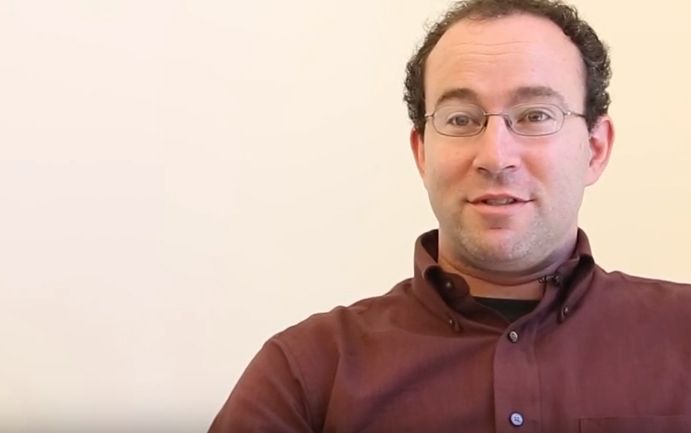Daniel Oppenheimer, professor of marketing and psychology at the UCLA Anderson School of Management, conducts research focusing on how people make decisions, especially in relation to what information we listen to and what we tune out. He also studies charitable giving, the psychological underpinnings of democracy and other subjects. Oppenheimer received his B.A. from Rice University and his Ph.D. from Stanford University. Prior to joining UCLA Anderson, he was jointly appointed in psychology and public affairs at Princeton University, where he received the President’s Award for Distinguished Teaching and the Phi Beta Kappa Teaching Award. He edited and contributed to the book, “The Science of Giving: Experimental Approaches to the Study of Charity” (Psychology Press, 2010) and co-authored “Democracy Despite Itself: Why a System that Shouldn’t Work at All Works so Well” (MIT Press, 2012). He is the author of more than 30 peer-reviewed articles, and his work has been covered by media outlets as diverse as the Economist and Glamour magazine.
How did you get interested in psychology as an academic pursuit?
I had a number of fantastic mentors in psychology who nurtured my interest in the field and helped me find my strengths and my passion. I was always interested in the human mind, but what brought me into the field was the people.
How did you get interested in investigating charitable giving?
I was initially intrigued by the discrepancy in giving between the Asian Tsunami and the Kashmir earthquake. People were so generous in response to the tsunami, but much, much less so in response to the earthquake. But both natural disasters were in similar locations, affected similar populations and caused enormous damage. I wanted to see if I could find out why one led to so much more philanthropy than the other. As I got more involved in charitable giving, my interests broadened a bit, and I never actually solved the puzzle that got me interested in the first place.
And what interested you in the psychological underpinnings of democracy?
I study human decision making, and most of what I find isn’t flattering. People often make frighteningly bad decisions. I was talking about my research to Mike Edwards, a political scientist, and speculating on the implications for democracy, and he told me about work in political science showing that democracies were incredibly effective forms of government. This seemed like a paradox — how is it possible that if the inputs into the system (human decisions) were so bad, that the outcomes (welfare for the citizens) could be so good. We started collaborating, and it led to the book, “Democracy Despite Itself” which addresses this paradox in detail.
What was the impetus for the book you co-edited, “The Science of Giving?”
At the time, there were many researchers studying giving, but mostly in isolated pockets. Norms researchers were studying how norms led to giving; emotion researchers were studying how emotions led to giving, etc. To really have an impact, we needed to aggregate the findings into a central source, hence the book. We were able to get a number of key charity researchers to contribute, representing the state of the art of what we knew about why and how people give.
Did any of the book’s findings really surprise you?
Many things surprised me. My intuitions about giving are nearly always wrong. I know a lot about charity because I’ve read a lot about charity, but I’m perpetually surprised by the findings. It’s one reason that it’s important to do empirical studies of these topics: Our intuitions about why people give are often inaccurate, and so when fundraisers go off on their intuitions, they are often less effective than they otherwise might be.
You were “honored” with a 2006 Ig Nobel Prize [from the Annals of Improbable Research, which collects and disseminates “research that makes people laugh and then think.”] Can you describe the research you won for and what that experience was like?
The paper, the “Consequences of Erudite Vernacular Utilized Irrespective of Necessity,” was on how using long words (in an attempt to appear smarter) can actually backfire and lead people to think you are less intelligent. It was a fantastically fun ceremony and an honor I’m quite proud of. It’s great to be able to do science, but it’s even better to be able to have fun while doing it.
This story was originally published in the UCLA Anderson Blog.




